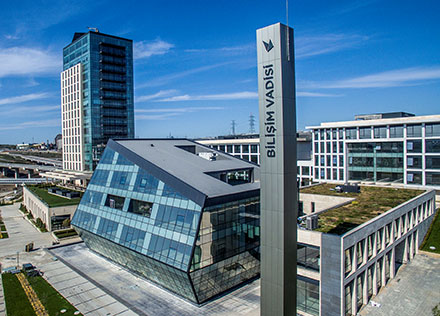One of the primary goals of the enterprise is productivity. The concept of productivity briefly describes the input-output relationship. More broadly, it is the relationship between the resources such as labour, raw materials, tools and machinery, energy, water that we use during production and the product that we get at the end of production. If we measure the amount of goods or services produced per unit of time, such as a day, month, or year, and divide it by the amount of resource or resources we use to produce them, we will find the productivity ratio. Although we use the same resources for the same period of time, if we get more and qualitatively better products, it means that we have increased our productivity. Of course, the quality should not be compromised. To do this, it is necessary to know the rational and economical use of resources, as well as to research and explore ways to better use resources by studying production flows.
The working methods and advantages of MES-MOM systems can be listed as follows:
- Production processes are monitored remotely and in real time. All information arising in the production process (inspection, quality control, production management, data storage, etc.) is provided, allowing visualization, management and operation.
- Batch processes for both multiple streams and products in production lines are managed and controlled with high flexibility. By implementing instructions and monitoring the execution of both formulas and batches, uniform quality is ensured and operational efficiency is increased.
- Efficient execution of processes according to their characteristics and production management in processes such as production orders, product definition, inventory tracking, data collection is ensured.
- The need for profitable, high-quality production meets the market's need for information about the components that make up the final product, as well as the recording of technological and quality indicators obtained as a result of various processes and tests to which the product is subjected during the production phase.
- Solutions for productivity, downtime and KPI (Key Performance Indicator) management. This allows us to carry out a comprehensive analysis of the performance of the different machines, lines and production environments (OEE, MTBF, MTTR, TEEP) that make up the plant, in order to improve efficiency and asset utilization.
- It allows us to manage processes in the plant, including the management of production process standards such as workflow and emergency procedures where systems and people cooperate, or quality self-assessment tasks, maintenance, etc.
- Provides corrective, preventive and predictive asset analysis solutions that, through early warning and diagnostic messages, allow the user to resolve complications before they become problems that significantly affect operations.
- Provides plant quality management and monitoring. Activities include managing specifications, managing the definition and implementation of quality sampling, managing batch statuses (status/changing path) and quality reports. It also includes real-time SPC (Statistical Process Control) and uses graphs and rules with defined parameters to generate alerts.
- Special monitoring and analysis programs are available for energy management solutions. Provides information on energy consumption related to production data (production units, shifts, days, hours). Energy is considered as a component of competitiveness, not as a cost.
- Production intelligence allows us to forecast data obtained during production processes together with business data such as sales, profit or investment figures. Customized reports and dashboards with the most important key performance indicators for management provide a real-time overview of your business.
- The inclusion of a database with structured information gives the user new possibilities for analyzing data obtained throughout the production process. This organized presentation of data makes it more user-friendly and effective in terms of providing recommendations for decision-making.
- All modules can be integrated into ERP (Enterprise Resource Planning) via Web Service or SQL Server. Thus, we can perform operations such as sending production orders, entering formulas, creating material lists. In addition, we can receive information such as the status of orders sent from MES-MOM systems, the use of resources such as labor, machinery, raw materials, etc. in real time.
In summary, it is possible to reduce costs, improve quality and identify the steps to be taken by obtaining the necessary data for faster production. Thus, you can increase productivity by organizing your production flows.
Oskon Automation analyzes your production flows with MES and MOM systems, collects the necessary data from your business and allows you to take the necessary steps to make your production more efficient.
 EN
EN
 TR
TR DE
DE AE
AE UA
UA AZ
AZ

 About Us
About Us Our Business Partners
Our Business Partners Organizational Chart
Organizational Chart Our References
Our References Our Certificates
Our Certificates Human Resources
Human Resources Factory Automation
Factory Automation Process Automation
Process Automation Digitalization
Digitalization Software Development
Software Development After-Sales Support
After-Sales Support Sales and Marketing
Sales and Marketing Project Management and Consultancy
Project Management and Consultancy  Opcenter (MES-MOM)
Opcenter (MES-MOM) Automated Mobile Robot (AMR)
Automated Mobile Robot (AMR) OT Cyber Security
OT Cyber Security Smart Sorting Lines (Sorters)
Smart Sorting Lines (Sorters) Solution 4.0
Solution 4.0 Material Tracking System (MTS)
Material Tracking System (MTS) Batch Systems (ISA-88)
Batch Systems (ISA-88) Autonomous Crane Systems
Autonomous Crane Systems Safety (IEC 61511)
Safety (IEC 61511) Automotive Industry
Automotive Industry Chemicals
Chemicals Seamanship (Shipbuilding Factory)
Seamanship (Shipbuilding Factory) Food Products
Food Products Intralogistics
Intralogistics Iron and Steel
Iron and Steel Cable
Cable




